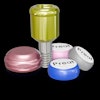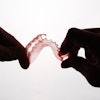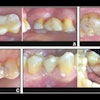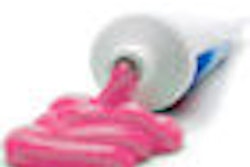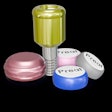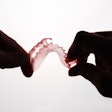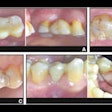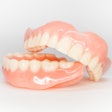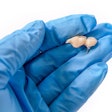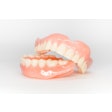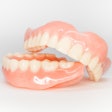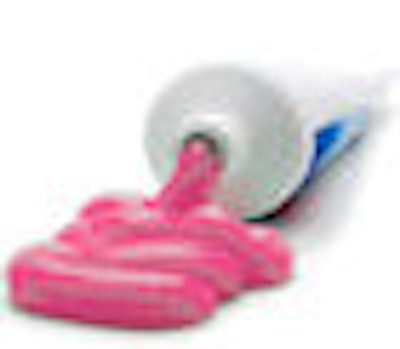
Regulatory authorities and dental associations are examining reports that overuse of zinc-based denture adhesives may cause neurological damage. While a direct causal link has not yet been established, dentists are being advised to counsel denture-wearing patients to ensure they aren't using too much adhesive.
“People have no idea this zinc issue can present itself.”
— Eric Chaffin, attorney with Bernstein
Liebhard, New York City
The issue has been percolating for several years, but received renewed attention this month following a segment that appeared May 5 on "Good Morning America." In addition, the U.S. FDA has received adverse event reports claiming that cases of zinc toxicity were caused by denture cream overuse, and the agency has confirmed that it has formed a working group to examine the issue.
The zinc/copper link
At issue is the effect that excessive ingestion of zinc over a long period of time can have in depleting the amount of copper in the human body, as copper deficiency can lead to the impairment of various neurological processes. In fact, copper deficiency is a well-established and increasingly recognized cause of neurologic and hematologic disease, and excess zinc has been identified as a source of copper deficiency (Journal of Neurology, January 2004, Vol. 251:1, pp. 111-114).
This is where denture adhesives come in -- some, anyway. While not all denture creams contain zinc, two of the most popular are GlaxoSmithKline's (GSK) Super PoliGrip and Procter and Gamble's (P&G) Fixodent, both of which are zinc-based (GSK also offers a zinc-free version of PoliGrip). The zinc acts as a binding agent that increases the product's hold, according to Jennifer May, a spokesperson for over-the-counter products at GSK.
While zinc is an essential mineral naturally present in many protein-rich foods such as beef, chicken, and nuts, and many supplements and other over-the-counter products such as Zicam (a cold medicine), there are limits to how much a person should ingest on a daily basis, especially with long-term use. The acceptable daily intake is 8 mg for women and 11 mg for men, and more than 40 mg constitutes zinc poisoning, according to the U.S. National Academy of Sciences.
A 2.4 oz (68 gram) tube of Super PoliGrip contains 38 mg of zinc per gram of product, and GSK recommends that a single tube should last approximately six weeks. According to the company's Web site:
You should not use more than the indicated quantity of Super PoliGrip, or use it more often than once per day, to compensate for poorly fitting dentures. You should consult your dentist regularly to maintain proper-fitting dentures.
The Super PoliGrip packaging carries these same recommendations, along with the list of ingredients (topping the list is "poly(methylvinylether/maleic acid) sodium-magnesium-zinc mixed partial salt").
Language on the Fixodent packaging is less explicit; under "Helpful Hints," a highlighted section reads "Don't use too much product at first. It may take a few tries to find the right amount for you!" and "Consult your dentist regularly to ensure proper fitting dentures." There is no list of ingredients on either the Fixodent box or tube; because the FDA has classified denture cream as a Class I device, the manufacturers are not required to list the ingredients.
However, the Fixodent Web site does feature a letter from J. Leslie Winston, D.D.S., Ph.D., P&G's director of professional and scientific relations for North America, which states in part:
A small amount of zinc is used in Fixodent to provide denture hold. This helps the denture stay in place securely so our consumers can eat, chew, and talk more confidently. All Fixodent products undergo rigorous scientific evaluations and safety testing before appearing on shelf and we continue to monitor them once in market. ... The average amount of zinc an average denture adhesive user would ingest from daily usage of Fixodent is less than the amount of zinc in most daily multivitamins and comparable to 6 ounces of ground beef.
Lawsuits on the rise
|
Symptoms of zinc poisoning
Source: |
But it is unclear how many denture wearers understand the potential risks if they don't follow these recommendations -- especially those who suffer from ill-fitting dentures who are more likely to use greater amounts of denture cream. In fact, in the last few years, several denture wearers have filed lawsuits against GSK and P&G claiming that the companies' zinc-based denture adhesives have resulted in serious disabilities.
At this point, 17 actions have been filed in the U.S., according to Eric Chaffin, an attorney with Bernstein Liebhard in New York City who has so far filed five cases for five individuals, four against GSK in state court in Philadelphia and one against both GSK and P&G in federal court.
"In many of these cases, the description is that the plaintiffs use 'excessive amounts' of denture cream," Chaffin said. "But there is no clear indication from the manufacturers on how much is too much. 'Do not use more than once a day without consulting your dentist' is incidental to the directions and does not warn consumers about potential zinc poisoning or copper deficiency."
But in court papers obtained by "ABC News," GSK and P&G said there is no scientific proof that denture cream can cause zinc-related illnesses. In previously issued statements, GSK has stated that "the vast majority of the zinc in the product remains in the adhesive and is not released into the mouth. Thus the potential for absorption of zinc through the gums is minimal."
A possible link?
At least one report in the literature hints at a connection between zinc toxicity and denture cream. In a study published last year in Neurology (August 26, 2008, Vol. 71:9, pp. 639-643, originally published online June 4, 2008), researchers from the University of Texas Southwestern Medical Center chronicled four patients they had seen in the department of neurology over a period of three to four years who were suffering from neurologic abnormalities and who all wore dentures and reported chronic use of large amounts of denture cream.
The patients all had abnormally high levels of zinc in their blood, accompanied by abnormally low levels of copper, the researchers reported. Normal blood levels of copper range from 0.75 to 1.45 mg/mL, but levels in these patients ranged from less than 0.1 to 0.23 mg/mL. A normal zinc blood level is 1.10 mg/mL, but these patients ranged from 1.36 to 4.28 mg/mL.
Each patient wore dentures and used two or more tubes of denture cream per week "for years," the researchers reported, and evaluation of past medical, surgical, and family history and laboratory testing failed to disclose any other process that could explain the neurologic abnormalities. Researchers tested three types of denture cream used by the patients to determine how much zinc they contained (17 to 34 mg per gram of product) and concluded that "no other plausible explanation for zinc excess or copper deficiency was identified." Copper supplementation resulted in mild neurologic improvement in two patients who stopped using denture cream, the researchers noted.
"These patients had used denture cream in large amounts on a daily basis for several years, going through two tubes a week for at least two to three years," Sharon Nations, M.D., lead author on the study, told DrBicuspid.com.
Dental groups take note
The reports have prompted dental groups to debate whether they should weigh in on the issue. On May 8, the ADA issued a statement that reads, in part:
We are not aware of any reports of neurological problems resulting from use of a denture cream following the manufacturer's instructions, nor indeed of any other reports of neurological or other health problems related to the use of denture cream products under any conditions. ... Patients with loose fitting dentures should see their dentist regularly for examination and appropriate care, which can reduce the need for denture adhesive products.
While the ADA statement goes on to say "To date, the FDA has not issued any advisory to the public or the profession on this issue," a number of events have been filed with the FDA's Center for Devices and Radiological Health regarding zinc-based denture creams.
On May 12, in response to a query from DrBicuspid.com, the FDA issued this statement:
FDA has recently become aware of a study suggesting a link between excessive use of zinc-containing denture adhesive creams and copper depletion, and is convening a working group to examine the issue more closely.
And while the American College of Prosthodontics (ACP) has not yet issued a formal statement, the organization has added some education material about denture creams to its Web site.
"One of our concerns is that the way this has been presented is it almost sounds like everyone uses denture adhesives," said Susan Brackett, D.D.S., a practicing prosthodontist and the ACP director of public and professional relations. "Most dentures do not require denture adhesive. We want consumers to know that if dentures get loose, the solution isn't just to pile on a bunch of denture cream."
The ACP recommends that denture wearers should have their dentures re-evaluated every five years, and that they may need to be realigned, remade, or adjusted.
"The fact is, if your dentures don't fit, you use adhesive," Chaffin said. "And if you have a patient come into your office with poor-fitting dentures who doesn't have the means to purchase new dentures, they need to use adhesives. But people have no idea this zinc issue can present itself."
Copyright © 2009 DrBicuspid.com
